Cognitive-Behavioral Therapy
Table of Contents
Since the 1960s, cognitive-behavioral therapy (CBT) has been one of the most common and effective therapeutic models for treating mental health conditions and substance use disorders. Counselors using CBT integrate psychotherapy program techniques that help identify and change negative thought patterns and replace them with thoughts and behaviors that are positive and healthy. In a cognitive-behavioral therapy program like that offered at United Recovery Project’s detox center, patients and their therapists collaborate to develop therapeutic goals.
How CBT Works For Detox
For patients going through an addiction detox program, a reasonable goal could be staying sober that first day. On the path to sobriety, sometimes you need to take it one day at a time.
Counselors use CBT techniques to help provide patients with the knowledge and tools needed to maintain a healthy and positive outlook as they move forward on the path to sober living.

CBT Can Help Prevent Relapse
Relapse prevention is an essential focus in a detox therapy program. Therapists use CBT to help educate patients about how they can anticipate “high risk” concerns. High-risk triggers can make a person want to turn to substance abuse and associated problematic behaviors. Patients must be aware of their particularly high-risk triggers to avoid them. CBT relapse prevention tactics help patients develop coping skills that can be integrated into everyday life once they return home.
CBT for relapse prevention instruction can take place in an individual or group setting. Role-play can be used to practice real-world skills that patients need to maintain sobriety. Playing out possible scenarios in the safety of a controlled environment is a way for patients to build the confidence they need to avoid relapse when faced with stress that in the past may have led to substance abuse.
How United Recovery Project’s CBT Program Works For Detox
In United Recovery Project’s CBT program for detox, counselors work with patients to develop goal-oriented strategies for tackling everyday problems. Strategies for changing thoughts and behaviors may include:
- Learning to recognize and accept harmful thoughts and emotions
- Understanding other people’s intentions
- Improving self-esteem, self-worth, and self-confidence
- Developing techniques to better cope with stressful situations
- Remaining calm in anxiety-producing situations
- Learning to control your emotional responses to stressful interactions
CBT can also be used to treat:
- Panic attacks
- Obsessive-compulsive disorder (OCD)
- Post-traumatic stress disorder (PTSD)
- Eating disorders
CBT encourages clients to consider connections between their thoughts, emotions, and behaviors. CBT counselors often suggest a set number of sessions to address a particular issue a client is working through.
Choose United Recovery Project’s Detox Program In Florida
It’s tempting to believe that at-home detox is an easy solution. However, medical detox has been clinically proven to be safer, more comfortable, and significantly more effective. It’s important to keep in mind the difficult and unpleasant withdrawal symptoms a person may experience during the detox process. Not only is it more comfortable, but it is safer to undergo withdrawal under medical supervision. Withdrawal symptoms may include but are not limited to:
- Anxiety
- Irritability
- Headaches
- Sleep issues
- Fatigue
- Tremors
- Nausea
- Vomiting
- Diarrhea
Contact United Recovery Project About Our Detox Program
Our highly trained staff have extensive experience with drug addiction rehab, alcohol addiction rehab, and recovery at United Recovery Project’s detox center. The luxury detox facility you’ll find with us offers a holistic approach to detox and recovery that caters to an individual’s needs.
Our detox program includes:
- Case management from start to finish
- Including assistance with legal issues and job placement
- Group therapy based on experiences and personality traits
- Individualized one-on-one therapy
- Tempurpedic beds
- Catered meals
- Access to a licensed nutritionist
- Upscale leisure activities
Contact us today to speak with a professional team member at 833.525.0166. Our staff is ready to assist you with any questions you might have about our detox program and how cognitive-behavioral therapy (CBT) can play a significant role in recovery.
- Programs
- Women’s Detox Program
- Prescription Drug Detox Program
- Opioid Detox Program
- Opiate Detox Program
- Men’s Detox Program
- Meth Detox Program
- Medical Detox Program
- Holistic Detox Program
- Heroin Detox Program
- Drug Detox Program
- Relapse Prevention
- Psychotherapy Program
- Nutritional Education
- LGBTQ-Friendly Program
- Group Therapy
- Dialectical Behavior Therapy
- Cognitive-Behavioral Therapy
- Anger Management Therapy And Substance Abuse Detox
- 12 Step
- Detox Therapy Programs
- Alcohol Detox Program
- Cocaine Detox Program
- Benzo Detox Program
- Women’s Rehab Center
- Transitional Living Program
- Transitional Living Program
- Sober Living Homes
- Residential Rehab Programs
- Residential Addiction Rehab
- United Recovery Project | Drug Relapse Prevention
- Alcohol Detox Center
- Alcohol Detox Center
- Rehab Alumni Program
- Rehab Aftercare Program
- Rehab Aftercare Program
- Partial Hospitalization Program
- Outpatient Drug and Alcohol Rehab
- Medical Detox Center
- Intensive Outpatient Program (IOP)
- Holistic Drug Detox
- Heroin Detox Center
- Heroin Detox Center
- Dual Diagnosis Programs in New Jersey
- Drug Relapse Prevention in New Jersey
- Dual Diagnosis Programs in New York
- Drug Relapse Prevention in New York
- Dual Diagnosis Programs
- Drug Relapse Prevention
- Drug Relapse Prevention
- Rehab Alumni Program
- Alcohol and Drug Addiction Aftercare Programs
- Women’s Rehab Center
- Sober Living Homes
- Residential Rehab Programs
- Dual Diagnosis Programs
- Outpatient Drug and Alcohol Rehab
- Intensive Outpatient Program (IOP) For Addiction
- Partial Hospitalization Program (PHP)
- Residential Addiction Rehab
- Holistic Drug Detox
- Medical Detox Center
